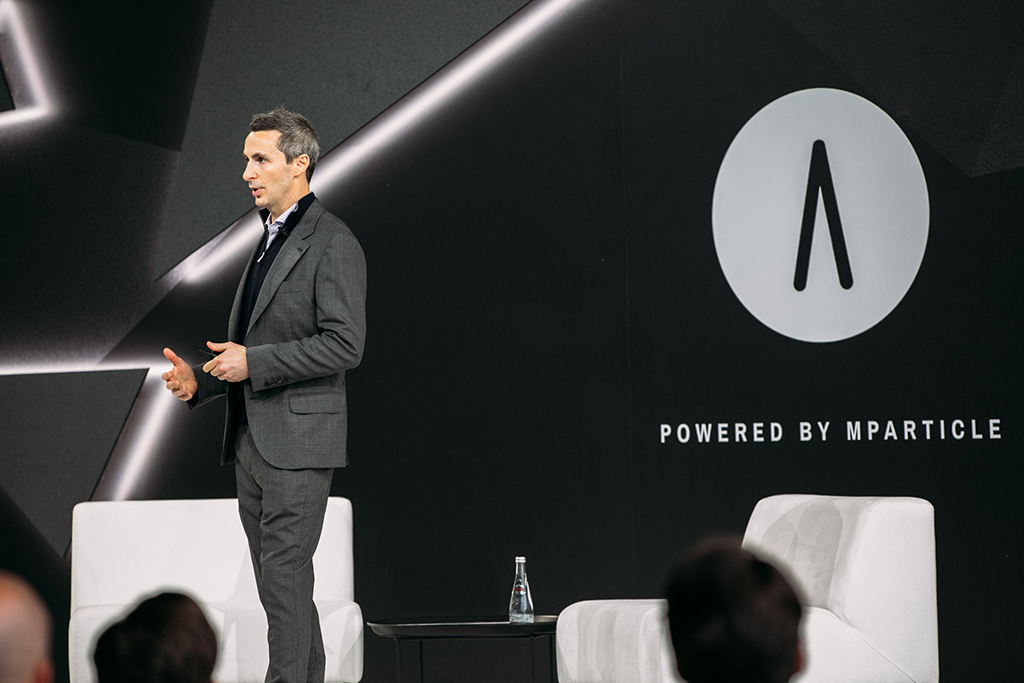“Customer experience is the only true moat there is,” said mParticle co-founder and CEO Michael Katz at the customer data and personalization platform’s Acceleration 2019 event in New York last week. A moat brands need to cross.
This was one of the new style of marketing and tech conferences — less about defining a vendor’s commercial offering, and more about hosting a serious of conversations reflecting curiosity about topics bearing sometimes no more than a tenuous relationship to the offering. Conversations, in this case, with sports and entertainment figures turned entrepreneurs and/or philanthropists — ESPN’s Jay Williams, the Jets’ Kelvin Beachum, hip hop artist Lupe Fiasco, and the crew from the Group Chat podcast.
But there were some interesting product announcements interspersed with the engagement, particularly reflecting mParticle’s ongoing evolution. Conceived as a mobile-first CDP, and probably the first in that niche category, mParticle became a CDP for all screens, and is now building the bridge between CDP and customer experience. As Katz said, “We realized it wasn’t just about marketing; that it’s really all about the customer experience,” which he defines as “beautiful design plus data availability.” But for customer data to inform experience, it has to be available both real-time and in personalized form.
What does that mean in practical terms? mParticle’s new Profile API, announced today, allows brands to retrieve programmatically (automatically, fast, and at scale) up-to-date user profiles created from mParticle’s cross-channel, identity-matched, data, and quickly create responsive personalized experiences across execution channels.
As a CDP, mParticle already aimed to append data from all touch-points to a single, unified, customer profile. The API offering makes it faster and easier to activate those profiles. When a user opens an app, for example, a customer ID sent to the mParticle platform automatically queries the profile data for that user, supporting the creation of a tailored experience in real-time.
In additional news, mParticle is extending a version of its enterprise-targeted service to start-ups. Katz explained the motivation at Acceleration as offering “enterprise grade data infrastructure to tomorrow’s enterprises today.” In other words, it’s a an opportunity to plant the seeds of mParticle in brands on the way up.
The offer, in fact, is generous — to those start-ups which qualify. Two years of complimentary access to mParticle, with instant access for approved accounts.
It’s an attempt to help newer brands square the circle. They don’t have the resources to invest in deep and long-term analytics initiatives, but lacking a data infrastructure and strategy can lead to critical problems before a business has fully made its case for success.
The Accelerator program will be available to consumer brands with a mobile presence (“Mobile forced marketers to be more technical, more analytical, and more customer-centric,” said Katz at Acceleration). Applicants also need to be less than five years old, have a clear business model, and to have raised less than $20 million in capital investment. “Our goal with the Accelerator program is to bring the data backbone used by some of the world’s most successful organizations to all consumer brands,”
said Katz in a release.
Giving the best stuff away free is the move of a self-confident vendor. Will competitors follow suit?








